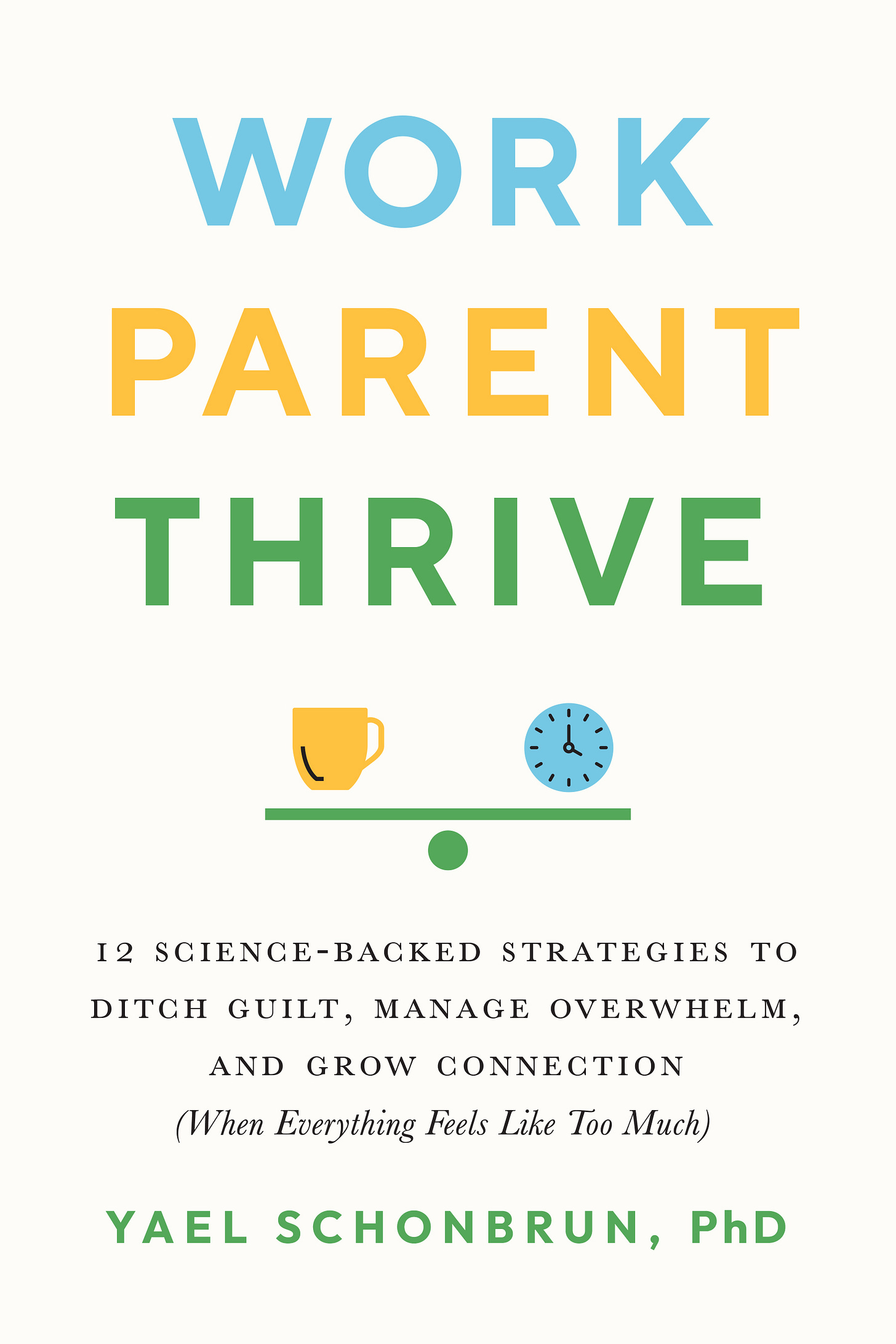How to Thrive in Relationships
21 science-backed practices to nurture connection
Happy New Year’s, everyone! It’s been an exciting couple of months of getting to know the community on Substack and I’m eager to dive into lots more science-guided relationship ideas and practices in 2024. As a quick introduction to new readers and reminder to ones who’ve been around for a while, in this newsletter we riff on relationships using science and clinical practice. Riffing is always done best when it’s a conversation, so I hope you chime in with questions, comments, insights, examples, and even pushback on the ideas discussed here. I also love getting emails with thoughts and questions, so please feel free to reach out in any way that works for you.
Given that this is the first entry of 2024, I wanted to zoom out and discuss some core practices for thriving in relational life. These are principles I’ve gathered through 20 years of digging into relationship science and treating relationships in the therapy room. I’ll be going more deeply in a number of these in the coming months, so if there are ones you’re particularly hungry to hear more about, please let me know!
21 Practices for Relational Thriving
Have fun together. When life gets busy, fun tends to drop to the bottom of the relationship priority list. This causes relationships to wilt. Make it a habit to have fun together. In busier, more stressful times, don't ditch the habit, just adjust or downsize it.
Connect over shared values and goals. You don’t need to agree on everything with your partner. In fact, disagreeing can be quite beneficial (see #3). But having clarity on which values and goals you do align on can keep you and your partner moving in the same direction. Get clear on those shared values and goals and use them as an ongoing way to be connected.
Find benefit in differences. Whether you're an optimist and they're a skeptic or you're a Republican and they're a Democrat, uncommon ground creates balance between extremes. It can help you learn and grow as individuals and as a couple.
Communicate clearly. Make sure you state both boundaries and desires clearly. A common trap is thinking your partner can read your mind. They can't.
Express your love. It’s easy to assume your partner knows you love them or that relationships shouldn’t require such expressions. But studies reliably show that demonstrations of love help a relationship to flourish. Whether it's a compliment, a hug, or pausing to listen to a story, find concrete ways to show your partner you care about them. Do this daily.
Show gratitude for love expressed. Knowing our expressions of love are appreciated keeps people motivated to keep offering them. Show or tell your partner you see and appreciate it when they show their care for you. Ask them to do the same for you.
Offer benefit of the doubt. When you are hurt your mind may automatically assume the worst. It'll usually be wrong.
Let the small stuff go. Remember that the majority of irritants are minor. Let those go.
Don’t let the big stuff go. Don't attempt to sweep but stuff under the rug. It won't work. The big stuff needs your attention.
Remember, there is no one right way to do anything. From parenting to loading a dishwasher, you're each entitled to your own preferences, priorities, and sources of wisdom. Accept that your partner’s “right way” may differ from yours. You can both be right, even when you don’t agree.
Be curious. It’s easy to assume you know your partner so well that you can predict what they think, what they’ll say, and what they’ll do. But people and relationships are ever-evolving. Humans always have nooks and crannies that have yet to be explored. Stay curious.
Grow together. Be deliberate about developing new interests, inside jokes, and experiences that belong to both of you.
Support your partner’s agency. Rather than trying to impose your way, perceive and nurture your partner's individuality and autonomy. We have more influence when we cease trying to control.
Really listen. Listening to understand is one of the greatest gifts we can give. Listen deeply. Then, check that you heard correctly, since innate biases, internal experiences, and assumptions often interfere with accurate understanding.
Schedule regular relationship check-ins. Though it may seem formal, this practice helps you to catch problems early and reinforce what's going well.
Actively look for the good. We are wired to get used to good stuff and focus, instead, on what we like less. Manually override this tendency by looking for things you appreciate.
Make requests. It’s tempting to make a demand or complaint when you’re unhappy, frustrated, or simply want something. But demands and complaints tend to cause defensiveness and pushback. When possible, transform demands and complaints into requests.
Don't go at it alone. When things get rocky, lean on friends, therapists, or family members who believe in your relationship.
Take time-outs. When conflicts start to feel unproductive, take a time-out. But also schedule a time-back-in.
Accept that mistakes are inevitable. Mistakes aren’t evidence of something fatally wrong with you, your partner, or your relationship—they are evidence that you are human and in a relationship with another human. See mistakes as a byproduct of being in a relationship and use them as vehicles to prompt learning and growing.
Recognize that most problems are co-created. Practice apologizing for your part and practice forgiving your partner when they apologize for theirs.
I’m always interested in adding to my collection of vital pieces of relationship wisdom, so chime in if you have nuggets that could be included in this list! Which ones resonated best with you? Which ones feel less important?
Go Deeper With Me!
If you enjoy the kind of relational science I explore in this newsletter:
Pick up a copy of my book, Work, Parent, Thrive. In it, I explore the relationship between roles, parents and children, and partners, and the science guiding us in how to thrive in a life full of demanding roles. (Email me if you’d like to be sent a free copy of the first chapter.)
Follow me on Instagram, where I attempt to regularly share science-backed ideas for relational thriving: @yaelschonbrun
I spend much of my professional time thinking about how science and clinical practice can foster relational thriving, including relationships between parents and children. A newsletter isn’t therapy, but it can be therapeutic. Send me your parenting or marital questions if you’d like to read about how social science and clinical practice can help you navigate specific relationship challenges more skillfully.
Relationally yours,
Yael




I love that “have fun together” is at the top of this list! Fun is *way* underprioritized in all aspects of adult life (including relationships), IMHO.
Thanks for doing this great work! I am pretty excited for your new work in the Psychologist Off the Clock podcast. I love the recap section of your articles where you reinstate all the main takeaways in a good listicle.
Apart from the behaviorism school, perhaps you can touch on other areas of psychology that emphasize relationships. Maybe how childhood wounding affects adult relationships and forays into psychoanalytic principles and defense mechanisms that play out in relationships. Chief among them are projection and projective identification.
I know that you refer to Carl Rogers and Jack Kornfield a lot. I'd love to see your reviews of their books at any point in time.
I am also loving the work of Alain de Botton in The School of Life. His videos and books take out the ideas embedded in the psychoanalytic school and translate them into simple, prose-like language. The many ideas that reverberate in his work are the fact that we are still children in many ways, and looking for an imperfect partner that can give insights into their madness is key to a successful relationship.
It'd be great if you can review his books on love and relationships with your own wisdom added in. There are many prose-like insights tucked in it that can be complemented well with your vital pieces of relationship wisdom.
also The Art of Loving – Erich Fromm book is wonderful.
One interesting video of his that I keep coming back to is the "17 Secrets to a Successful Relationship." I am providing the link here.
https://www.youtube.com/watch?v=ak4j5pVHDGg
Apart from science books, there are other great relationship books coming out that you may want to look at.
"How to Talk about Love: An Ancient Guide for Modern Lovers"
Yung Pueblo's upcoming book, "How to Love Better: The Path to Deeper Connection Through Growth, Kindness, and Compassion"
maybe compiling other books that are not science-base but offering good wisdom on how to love better would be fun.
I am just starting to read your post in chronological order, so not sure if you have covered the Gottman principles and books, love to know your thoughts on their work as well.
The recent Being Well podcast episode by Rick and Forrest Hanson, "Attachment Masterclass: The Art and Science of Connection | Being Well," compiled all their great insights on adult relationships linked to attachment theory. The episode is so great! I am providing the link here.
https://www.youtube.com/watch?v=ha0hfK9QWR4